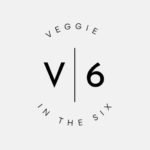What are the best vegan vitamins or what vitamins as a vegan do I need are questions that I hear a lot. Adopting a vegan diet offers numerous health benefits, but it also requires careful attention to certain nutrients typically found in animal products. We all know that we need to be careful of getting enough protein since it’s one of the first things we get asked when disclosing we are vegan.
This article explores essential vitamins and nutrients that vegans need to monitor, including long-chain omega-3 fatty acids, vitamin B12, and vitamin D (this one everyone needs in winter).
*this article contains affiliate links
It’s important to note that attention to vitamin intake is not exclusive to a vegan diet; many people, regardless of their diet, supplement nutrients that are also supplemented in livestock.
Also, I should note that I am by no means a doctor or nutritionalist. I am fairly educated on these matters but I do not have any formal education.
Long-Chain Omega-3 Fatty Acids

What are they?
Omega-3 fatty acids are one of the best vegan vitamins because they are crucial for heart health, brain function, and reducing inflammation and this is why it is one of the nutrients vegans need to be mindful of.
There are different types, including EPA (eicosapentaenoic acid) and DHA (docosahexaenoic acid), predominantly found in seafood, and ALA (alpha-linolenic acid) found in plants.
The body can convert ALA to EPA and DHA, but this process is inefficient (You would need to eat a ton of flax everyday). Therefore, vegans might need to focus on direct sources of EPA and DHA and the easiest way to do this is with supplementation.
Health Benefits
Research indicates that omega-3 fatty acids may lower the risk of cardiovascular disease and other conditions like certain cancers, Alzheimer’s disease, dementia, and age-related macular degeneration.
However, it’s essential to consult healthcare providers before starting any supplementation, as omega-3 supplements can interact with medications and might not be suitable for everyone.
Vegan Sources and Supplementation
Vegans can obtain ALA from flaxseeds, chia seeds, and walnuts, but may need to consider algae-based supplements for direct sources of EPA and DHA (National Institutes of Health, 2021).
Its important to remember that fish get their omega-3 from algae so we are just going directly to the source!
If you are interested, I use these ones because they don’t have an aftertaste like some of the others I’ve tried.
Dr. Greger, in his book How not to Diet, recommends taking 250mg daily.
Vitamin B12 – Best Vegan Vitamins
When asked what vitamins vegans need B12 is for sure a big one.
What is it?
Vitamin B12 is essential for nerve and brain health and red blood cell formation. It’s primarily found in animal products, so vegans need to be vigilant about incorporating it into their diet.
It’s important to note that B12 is unique because it is not made by plants or animals but by microbes.
Historically, humans consumed adequate B12 from natural sources like soil and untreated water, where these B12-producing bacteria thrive. However, with modern agricultural practices and increased emphasis on food hygiene, our exposure to these natural sources has drastically reduced.
As a result, B12 deficiency is not just a concern for vegans but also for the general population.
Interestingly, the common belief that meat consumption automatically covers B12 needs is not always accurate. Many farm animals, especially those raised in feedlots, are not grazing on B12-rich grasses and soils but are given feed that may be lacking in natural B12.
Consequently, these animals often require B12 supplementation to meet their nutritional needs, which, in turn, is passed on to meat consumers. This reliance on supplementation highlights a broader issue in modern diets, where both plant-based and conventional diets might require careful consideration of B12 intake.
Health Functions
Vitamin B12 plays several vital roles in the body’s health and functionality. It is crucial for the normal function of the brain and nervous system and for the formation of blood. One of its key roles is in the synthesis of DNA, the genetic material in all cells.
B12 also contributes to the health of nerve cells and helps in the production of a substance called myelin, which insulates nerve fibers and enhances signal transmission.
Additionally, vitamin B12 is involved in the metabolism of every cell in the body, particularly affecting DNA synthesis and regulation, as well as fatty acid synthesis and energy production. It also plays a significant part in preventing megaloblastic anemia, which causes people to feel tired and weak.
For a comprehensive understanding of the health functions supported by vitamin B12, you can refer to the National Institutes of Health’s Office of Dietary Supplements webpage, which provides detailed information about this crucial vitamin.
Vegan Sources and Supplementation
Vegan sources of B12 include fortified foods like plant milks, some breakfast cereals, and nutritional yeast. However, supplementation is often recommended to ensure adequate intake.
Dr. Greger suggests taking 2,500mcg of B12 (Cyanocobalamin) at least once a week. I use these ones here.
Vitamin D in Winter
What is it?
Vitamin D, often referred to as the “sunshine vitamin,” is a fat-soluble vitamin that is essential for maintaining healthy bones and teeth, supporting the immune system, brain, and nervous system.
Health Functions
Vitamin D plays a crucial role in regulating the absorption of calcium and phosphorus, and in facilitating normal immune system function.
Getting a sufficient amount of vitamin D is important for normal growth and development of bones and teeth, as well as improved resistance against certain diseases.
Unlike other vitamins, vitamin D can be synthesized by the body when the skin is exposed to sunlight, specifically ultraviolet B (UVB) rays. This unique feature distinguishes vitamin D from other vitamins.
However, vitamin D can also be obtained from dietary sources and supplements, especially important in areas with limited sunlight exposure or for individuals who spend limited time outdoors.
Vegan Sources and Supplementation
While the body can produce vitamin D from sunlight, winter months in many regions make this challenging. Vegan sources include fortified foods and vitamin D2 or D3 supplements derived from lichen.
Balanced Vegan Diet and Supplementation
A well-planned vegan diet can provide most nutrients, but careful planning and supplementation of certain vitamins are crucial. It’s a misconception that only vegans need to supplement; in modern diets, many people, including meat-eaters, consume supplemented nutrients indirectly, as livestock are often fortified with vitamins like B12.
There other vitamins and minerals that we should be mindful of as vegans, like iodine, but these are the most important. The most important thing is to eat as much whole foods as you can. If you are doing that you will cover most of your bases.


Leave a Reply